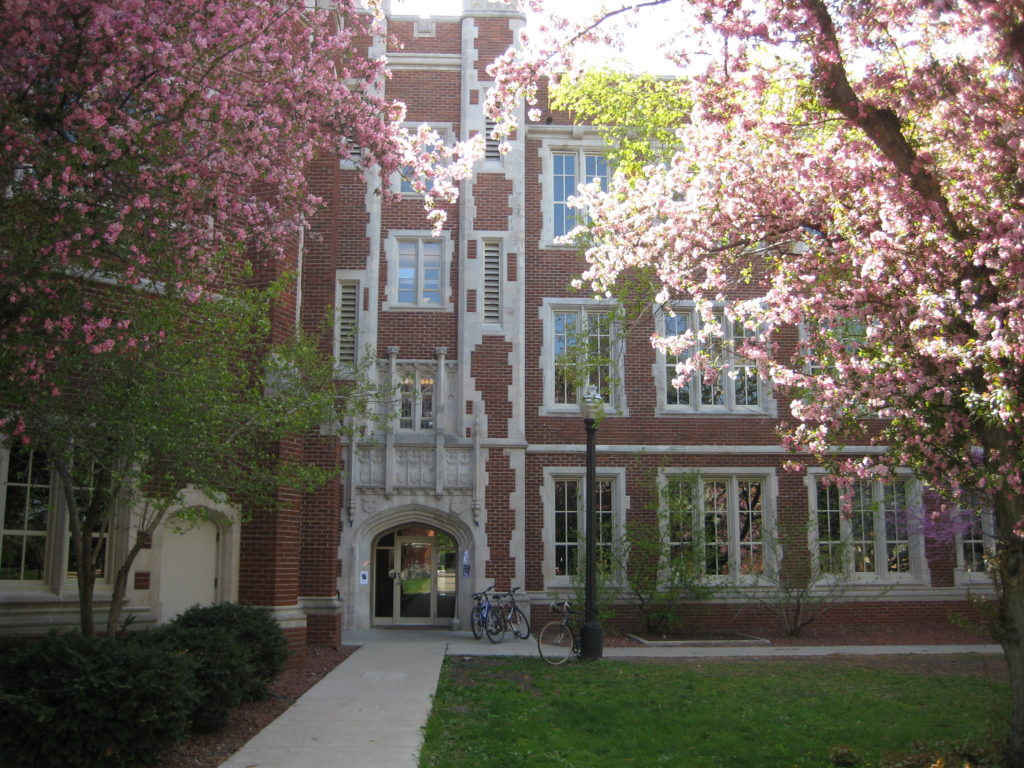Much has been written about Chinese students coming to American colleges. An article out today, Chinese applications to U.S. schools skyrocket, [link no longer exists] quotes a Chinese high schooler contemplating attending the University of Washington:
I know this [ambition] is pretty high,” said the 17-year old Beijing native. “But I think I can give it a shot.”
To prepare, Duan wants to study international relations at an American college — someplace like the University of Washington. “I hear [it] is good at social science,” she said.
The University of Washington is one of approximately 10 U.S. universities Duan plans to apply to in the coming year with the help of an education consultant she hired last summer.
That got me to thinking about the complaints (yes, it has been nothing but complaints) I often hear from college students (about half of whom are at the University of Washington — but I certainly have heard the very same thing from sons and daughters of friends who attend other schools and from their parents as well, who in turn have heard it from their kids) about their fellow students from China. I am not going to editorialize at all here, beyond noting that I find these comments troubling. Instead, I am just going to set out the things I have heard and let people discuss them in the comments.
I want to be careful to note that these comments are about students from China, not about students of Chinese ethnicity. I also want to note that pretty much without exception, the students who conveyed these comments are sophisticated, intelligent, and well-traveled. They are not red-necks, by any means. In many instances, they would temper their comments by noting how the Chinese students who come from Hong Kong or Singapore or even Vietnam “are not like this.”
I have heard the following, mostly more than just once and virtually always with other students present, who always seem to join in. Though I have put quote marks around the comments below, in most cases, I do not remember exactly what was said.
- “They don’t come to learn. They come just for the grades.” I have heard this one at least a half dozen times.
- “I am convinced that if our teacher asked the class what 2+2 equals, and nobody spoke up who is not from China, not a single student from China would answer.” I have heard some form of this one at least a dozen times.
- “They are killing class discussion. They never contribute.” One student told me of how all the students not from China agreed not to speak one day to see what would happen. There was no class discussion and the teacher asked them not to do that again.
- “I cannot stand having to listen to them give presentations. They don’t even try.”
- “The school is going to regret having admitted them. They will never donate money to the school as alumni. It will be like they were never here at all.”
- “You never see any of them at school functions, unless it can help them with a grade.” I am constantly hearing this one.
- “They never make an effort to talk with anyone other than people from China.”
- “It is unbelievable how often I have seen them cheating and I am always complaining to my professors about this, but they just act like they are too important to deign to deal with something like this. Just come watch a test being administered and it will be obvious. They are allowed to get away with it because they pay the foreign tuition rate. It isn’t fair.” I hear this one constantly as well and this one causes the most anger.
- “I’ve heard that most of them cheated to get in.”
- “The school claims they contribute to diversity. That’s a lie. How can someone who never says anything contribute to anything? Everyone knows they are here only because they pay the foreign tuition rate.”
- “This is a great way to ruin relations between China and us.”
- “Why do they even bother? They come here to study, but since they never interact with anyone not from China, I don’t see why they come.”
And again, what’s so interesting is how often the complaining students were careful to note that they had no issues with Chinese students from Hong Kong or Taiwan or Singapore or Malaysia or the Philippines or the United States, “who are not this way at all.” The above views really do seem to apply to just students from Mainland China.
I know we will get comments from people criticizing the students who made the above comments (and me for publishing them), but I think the more fruitful comments will address what can be done to help bridge this massive fissure. I would also love to see people address what this university-level tension portends for future China-US relations. I will note that I have heard Australia and the UK are dealing with similar issues.
What, if anything, needs to change?
For more on these issues, check out the following:
- New York Times, The China Conundrum
- Chronicle of Higher Education, How American Colleges Can Better Serve Chinese Applicants and American colleges find the Chinese-student boom a tricky fit
- American Public Media, Chinese students, too qualifed to be true?
UPDATE: Seeing a comment below reminded me of something I should have put in this post. A few months ago, I spoke at my alma mater, Grinnell College. Grinnell is a small, liberal arts college in the middle of Iowa. Here is a New York Times article on Chinese students at Grinnell. It talks about how Grinnell’s admission is need-blind and ohow a dozen full scholarships are set aside for foreign students. It says Grinnell usually accepts around 15 of 200 China applicants, out of total student body of around 1600 students. When I was at Grinnell this summer, I led a discussion group of maybe ten students interested in international law. Two of those students were from China and neither of them were the least bit reticent and both were exceedingly articulate, in English. In fact, one of them asked if she could go with me and my career services minder to the student union to talk some more. I have also met a number of law students from China who do not match the complaints above. So my thinking is that maybe the problem is in the numbers. If 500 students from China go to one university as undergrads, it is too easy for them to act as set out above. But if thirty students from China go to a small college that reviews the applications intensely for more than just the numbers (test scores and dollars) and does not tolerate its students not participating in class discussions or the life of the college, it can work out just fine. Your thoughts people. . .

























